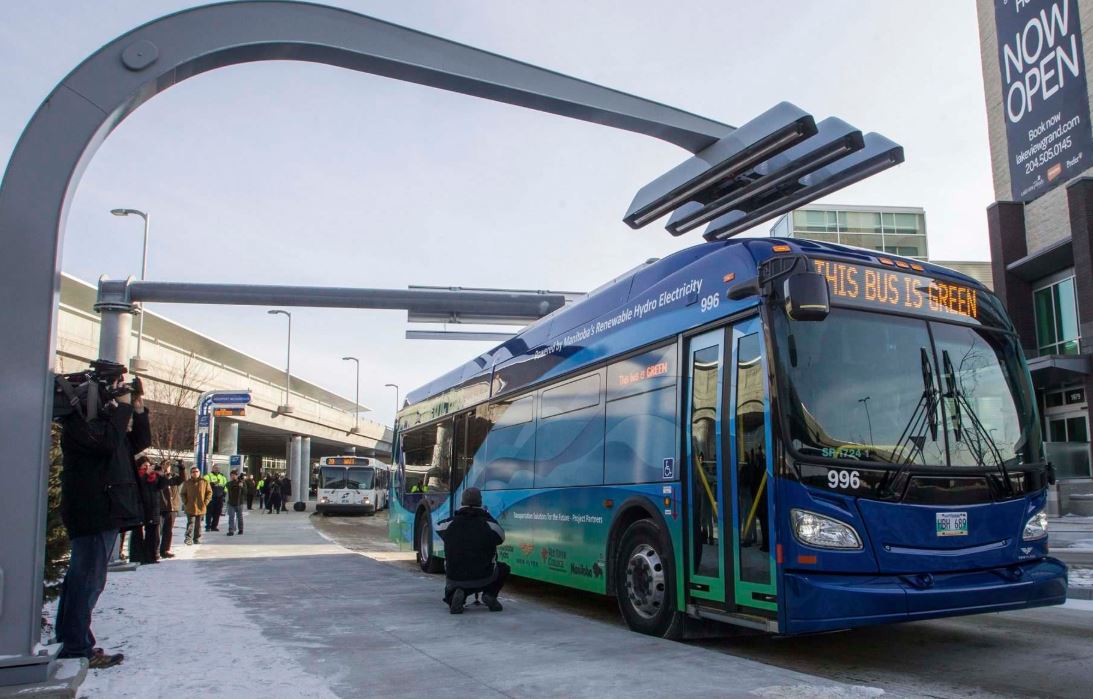Winnipeg Free Press
Posted: 10/4/2018 4:00 AM
https://www.winnipegfreepress.com/opinion/analysis/manitoba-should-embrace-a-clean-energy-future-495123681.html
Clean energy is a hot topic in which Manitoba has excelled, with our province being one of the few places in the world where about 99 per cent of the electricity is generated carbon-free. Although hydroelectric dams are by no means squeaky clean, they avoid plundering hydrocarbons to generate electricity.
California is considered progressive. Gov. Jerry Brown has recently signed state senate bill SB 100, which has enacted into law a requirement for 100 per cent carbon-free electricity in California by 2045. We have nearly achieved this in Manitoba already, with most of our electricity coming from hydro. We are way ahead of California in generating carbon-free electricity.
Unfortunately, Manitoba is not so progressive in energy use as California when it comes to being carbon-neutral by 2045. Brown also issued an executive order requiring energy use in the state to be totally carbon-neutral by 2045. This will provide incentives for electric vehicle infrastructure, electric vehicles and hydrogen/electric-based heavy transportation such as semi-trailer trucks and trains.
Manitoba Hydro is constructing the Keeyask hydroelectric generating station, to be completed by 2021. The utility submitted evidence to the Public Utilities Board, in its recent application for a 7.9 per cent electricity rate increase for each of the next six years, that Keeyask’s energy is not needed for Manitoba until 2040. This surplus energy will generate only about $160 million each year from unprofitable export revenues, with little chance of that figure increasing, while Keeyask’s annual operating charges alone will be more than $400 million.
Manitoba’s top imports are published each year on the provincial government website under the heading Manitoba’s Top Import Commodities. Imported petroleum in 2015, the most recent year reported, was $602 million. It was one of the highest import commodities for that year. If Manitoba followed California’s lead and set a goal to decarbonize transportation, then Keeyask’s surplus energy would support about one million electric vehicles. According to Statistics Canada, there were 870,332 road motor vehicles registered in Manitoba for 2017. If electric, they could all be supplied from Keeyask.
Diverting Keeyask’s surplus $160-million annual electricity exports back into the province for electric vehicle transportation could displace the $600 million yearly that leaves Manitoba to pay for the imported petroleum. Keeyask should become more profitable and hydro rate increases should ease. Fuel costs for an electric car are well below gasoline or diesel costs to run a vehicle with an internal combustion engine, so car owners will benefit.
In addition, sales of electric vehicles are increasing significantly while their purchase cost is falling. Within less than 10 years, the cost of an electric vehicle will be below that of an equivalent internal combustion vehicle. Economics will then become the main incentive for the transition to carbon-free transportation. Unlike petroleum for transportation, the main battery currently used in electric vehicles is lithium ion, which is now 90 per cent recyclable.
A good place to start is transit — when diesel buses retire, replace them with electric buses. This should apply to city buses and school buses in particular. This transition is happening in many cities around the world, including London, Mexico City, Los Angeles and Paris. So why not in Manitoba?
With leadership like we see in California, launching the transition to carbon-free transportation over the next several decades in Manitoba will cause a disruption not unlike that experienced when horse-drawn vehicles were rapidly replaced by automotive cars, trucks and buses during the first two decades of the 20th century.
Transitioning to entirely carbon-free transportation with cars, trucks, buses and trains will create good-paying jobs, ensure our children breathe cleaner air and provide more profitable use of our hydroelectricity to the benefit of the Manitoba economy.
Dennis Woodford is president of Electranix Corp., a consulting firm that specializes in power-system studies.
